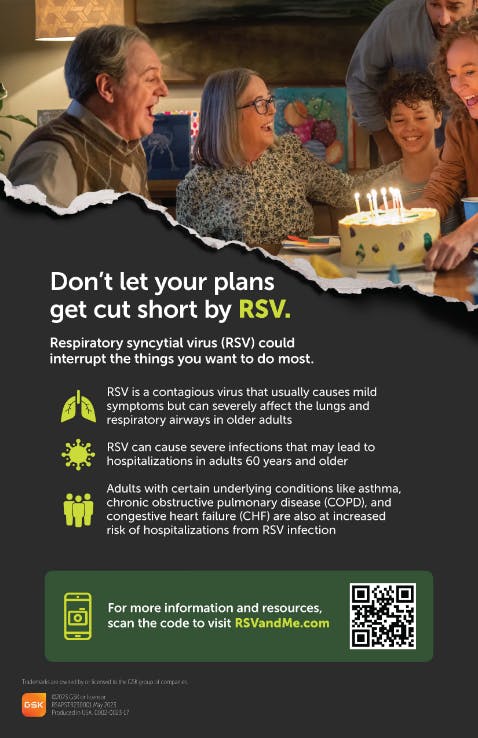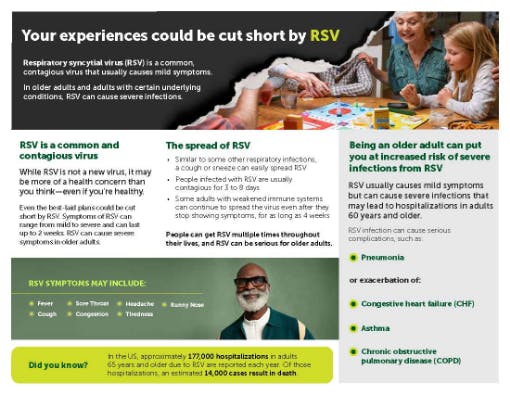Text on Screen
RSV infection in older adults typically causes mild cold-like symptoms including runny nose, sore throat, cough, and headache. But in older adults RSV can sometimes be severe, causing hospitalization and in some cases, death. Debbie is a patient advocate and survivor of respiratory syncytial virus (RSV). This is her experience; others’ experiences with RSV may be different. Debbie has an underlying medical condition that may have put her at increased risk for severe RSV infection. Debbie is not a healthcare provider. She was compensated by GSK for her participation in this program.
Debbie
One day, I was babysitting my two-year old grandson who had a cold, or so we thought, and it was a few days after that that I got sick with a high fever, a nasty cough, and I just didn’t feel right. I went to the local ER. When the ER doctor told me I had RSV, the first thing out of my mouth was, “But, I’m an adult!” I had no idea that an adult could get RSV.
Text on Screen
Debbie’s RSV story
Debbie
When I called my primary care physician, I was told that I had a virus and that there was no treatment for it. I was told to ride out the symptoms and to buy an over-the-counter cough medication for my cough. I know for a lot of people RSV can be pretty mild, but for me it was pretty severe. My fever was going up, 102, 102.5. The cough was uncontrollable. I coughed morning, noon, and night.
Text on Screen
RSV is usually mild, though in older adults, it can sometimes be severe.
Debbie
There were days I rarely got up out of that bed. Brush my teeth, brush my hair— wasn’t going to happen. It was a devastating time for me. It was a time when for the first time in my life I felt old. I missed out on so many activities at my church, with my grandson’s school, and I could no longer be the independent woman that I was. There were days that, I was so sick I honestly thought, “This was it.”
Text on Screen
Most RSV infections go away on their own in a week or two.
Debbie
The first two months with RSV were very difficult. The next two months I started feeling better. My fever went away, and the cough was still there, but it wasn’t as persistent, and finally, after four months, I could honestly say that I was over RSV. I just want to share that I am so very, very grateful every day that I got through it. I want older adults to know that RSV can be a very serious disease. I would not want anyone to go through what I went through.
Text on Screen
(GSK logo) Intended for US audiences only.
Trademarks are owned by or licensed to the GSK group of companies.
©2022 GSK or licensor.
RSAVID220006 November 2022
Produced in USA.



